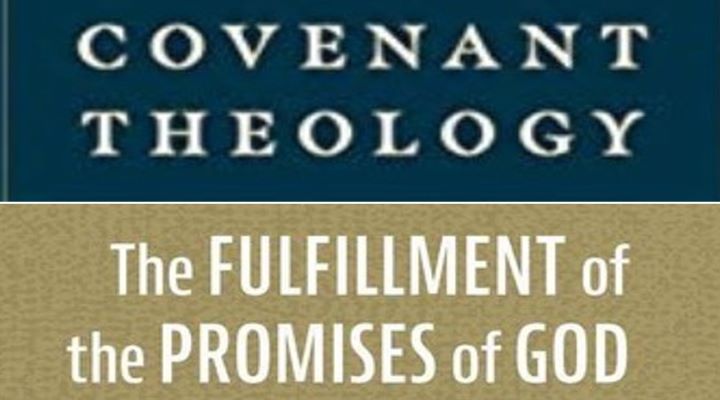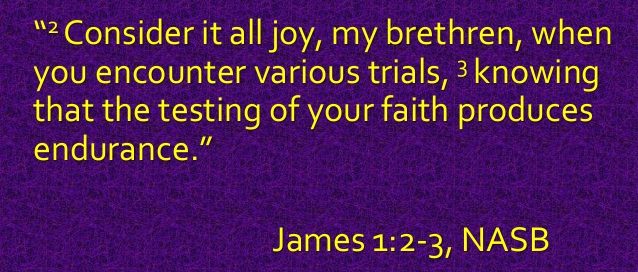We at Things Above Us unashamedly hold to the doctrines of grace while also seeking to graciously partner and interact with believers from a variety of forms of both covenant theology and dispensationalism. For a helpful guide to the similarities and differences in these camps, I highly recommend my friend George Alvarado’s interviews with Andrew Rappaport which you can find here and on iTunes. You can also find other resources here and here. In this article, we review a pair of great books which look at Covenant Theology.
Covenant Theology

Waters, Guy Prentis; J. Nicholas Reid, and John R. Muether, eds. Covenant Theology: Biblical, Theological, and Historical Perspectives. Wheaton: Crossway, 2020. 672 pp. $60.00.
Biographical Sketch of the Editors
Guy Waters is the James M. Baird Jr. Professor of New Testament at Reformed Theological Seminary (RTS) Jackson, and academic dean at RTS Dallas and RTS Houston.
Nicholas Reid serves as associate professor of Old Testament and ancient Near East studies and director of the hybrid MDIV program at RTS Orlando.
John R. Muether is dean of libraries and professor of church history at RTS Orlando.
Summary
The book is made up of 27 chapters divided across 3 parts. In Part I, the authors exposit the Biblical Covenants, Part II moves into Historical Theology from the eras of the Early Church to recent formulations of Covenant Theology, and Part III addresses Collateral and Theological Studies including Ancient Near Eastern backgrounds, Second Temple Judaism, Contemporary New Testament Scholarship, and various alternatives to Covenant Theology. There is a List of Contributors, a General Index, and a Scripture Index.
Overview
In the forward, Ligon Duncan begins by unpacking what is meant by the claim that “Reformed Theology is covenant theology (23-30).” He offers a helpful explanation of the distinction between Biblical Theology (BT) and Systematic Theology (ST), affirming the need for both in the study and grasp of Scripture’s teaching (23). Duncan presents BT and ST as complementary disciplines, writing “Covenant theology is Reformed theology’s way of gleaning from and putting together both (ST) and (BT). Hence, Reformed theology is covenant theology (24).” At the same time, the editors acknowledge that there are some broadly reformed theologians like John MacArthur who reject claims to an overarching CT as speculative or “theologically derived” distortions of God’s intentions (32).
“Reformed Baptists”?

Reformed Baptist Covenant Theology
Historically, covenant theology (CT) has not been unique to Presbyterian and Reformed Christians, or even Paedobaptists. As Duncan rightly admits, CT goes back to the earliest Christians and lasted into the era of Protestantism, including the Baptist movement. No less than the great Baptist preacher Charles Spurgeon believed, “The doctrine of the divine covenant lies at the root of all true theology (25).” As Duncan puts it, CT is the “native soil” of Protestant theology (26). While I appreciated the recognition of confessional Reformed Baptist covenant theology, I was disappointed at the lack of interaction with or even mention of noteworthy Reformed Baptists like Richard Barcellos, Jeffrey Johnson, Greg Nichols, James Renihan, or Sam Waldron.
Dispensationalism
As I have already mentioned, the editors of Covenant Theology provide a substantial amount of interaction with other views, including Dispensational Theology (DT) which has been CT’s primary rival system. While the distinctions between CT and DT may seem trivial, they will inevitably have an impact on how Christians apply the Bible to current events in global politics, the role of God’s law, evangelism, and other areas. Glodo helpfully charts the multiple revisions and clarifications that DT has undergone over the years. He also recounts the historical irony of dispensationalism originating in Presbyterian churches (531; 535-536).
The author himself is clear about his critiques of DT while also being quick to recognize positive contributions by dispensationalists including their commitment to the inerrancy of Scripture, justification by faith apart from works, and the doctrine of the Trinity (527-528). In critiquing Charles Ryrie’s formulation of DT, Glodo concludes that the system “fails to properly relate Israel and the church as a relationship of organic outgrowth rather than as parallel destinies (534).” Rather than the erroneous claim by some dispensationalists that covenant theology is “replacement theology” regarding the role and nature of Israel, CT is about the fulfillment of the promises of God (545-547).
Conclusion
The editors and contributors of Covenant Theology, all affirm covenant as the organizing theme clearly taught in Scripture, and not a framework being imposed on the text of Scripture. While there is an emphasis on Reformed Pedobaptist CT and the implication that the Westminster Confession is the standard, the editors acknowledge that covenant theologians have not been and are not monolithic, writing “The seeds of CT are broad and varied in the early church … (35)”. I appreciated the way that the editors remain charitable in their interactions with competing views (37). This volume is an important theological resource and I highly recommend it.
The Fulfillment of the Promises of God
Belcher, Richard P. Jr. The Fulfillment of the Promises of God: An Explanation of Covenant Theology. Ross-Shire: Mentor, 2020. 324 pp. $19.99.
Biographical Sketch of the Author
Richard Belcher serves as John D. and Frances M. Gwin Professor of Old Testament and Academic Dean  at Reformed Theological Seminary (Charlotte and Atlanta). His other books include Finding Favour in the Sight of God: A Theology of Wisdom Literature, Genesis: The Beginning of God’s Plan of Salvation, and The Messiah and the Psalms.
at Reformed Theological Seminary (Charlotte and Atlanta). His other books include Finding Favour in the Sight of God: A Theology of Wisdom Literature, Genesis: The Beginning of God’s Plan of Salvation, and The Messiah and the Psalms.
Summary
Richard Belcher starts The Fulfillment of the Promises of God with an introduction in the opening chapter, followed by 7 chapters covering the biblical covenants. The author takes Chapter 9 to address Robertson and Murray’s variations of CT, which he considers to be minor. He then moves on to the “Major Variations” from Dumbrell, Williamson, and Federal Vision. Chapters 10 and 11 serve as presentations and evaluations of Meredith Kline’s views. Belcher gives Confessional Baptist CT and Progressive Covenantalism their own chapters and concludes with Chapter 14’s Benefits of CT. There are a pair of appendices exploring the Ancient Near East context of covenants and a study of the writer of Hebrews use of “Testament.” A Selected Bibliography and standard Scripture and Subject indices conclude the book.
Review
So why another book on Covenant Theology (CT)? Belcher explores the Bible’s theology of covenants through the lens of the Westminster Confession of Faith (WCF) but also compares it to other versions of CT including the Second London Baptist Confession of Faith and its close cousin 1689 Federalism, as well as Federal Vision, New Covenant Theology, and others.
Belcher’s explanation of Federal Vision (FV), also known as Auburn Avenue Theology, was particularly helpful (156-162). As with all views and their various camps, not all proponents agree on every point. Belcher is careful to cite the major FV works and theologians. He succinctly charts the development of their doctrine, including the alarming claim that the baptized and elect are one and the same because Baptism brings about union with Christ (158). Federal Vision, like the New Perspective on Paul, has brought some proponents to the conclusion that covenant members are brought in by faith but kept in by works. Belcher rightly points out that the FV view tampers with justification by making it a conditional process, rather than a definitive declaration of righteousness (164).
An aspect of this book that I really appreciated was Belcher’s interaction with Confessional Reformed Baptist scholars Richard Barcellos, Paschal Denault, and James and Sam Renihan (199-231). Belcher cites the work of these men when explaining how Particular Baptists historically viewed the covenants. For example, they did not consider the Covenant of Grace (COG) to be split into two distinct historical administrations and also could not affirm the Old Covenant as merely a different form of the COG (200-201). The Baptist reading of Old Testament promises fulfilled in the New inevitably leads to the position that the church is composed of a body of believers and baptism is only to be administered to disciples (208-209).
Understandably, Belcher affirms his institution’s confessional standard, the Westminster Confession of Faith (WCF) as a faithful summary of what Scripture teaches. Unfortunately, much like the authors of Crossway’s Covenant Theology, Belcher asserts but does not prove that the covenant theology of the Westminster Standards is “the starting point for understanding reformed covenant theology” and is “standard reformed Covenant Theology” (16, 21 emphases added). He makes clear that in his view, other forms of CT are not merely variations or valid options, but as occasions when “scholars have deviated from the standard of the WCF (21, emphasis added).”
Conclusion
Richard Belcher Jr.’s The Fulfillment of the Promises of God packs a sizeable amount of material into a modestly sized paperback. The author is thorough and charitable throughout his interactions with the views of Covenant Theology that differ from the Westminster Standards and he demonstrates consistently respectful scholarship. Highly recommended.
A copy of each book was provided by the publisher in exchange for an honest review.






Very fair and accurate reviews. It is too often that credo and paedo baptists argue over the things that divide them in discussions of covenant theology rather than affirm the things that connect them and that offer benefit to both sides of the discussion.